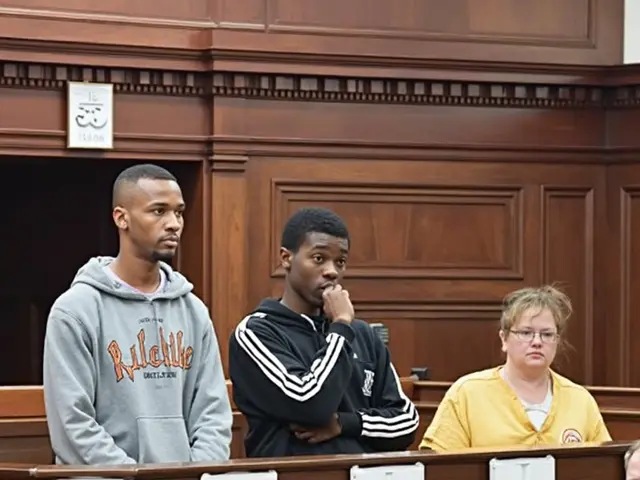Confessions Under Pressure: What Really Happened in the Interrogation Room?
The courtroom in Saldanha Bay just keeps heating up as questions swirl around the confessions of Jacquen “Boeta” Appollis and Steveno van Rhyn, both accused of snatching six-year-old Joshlin Smith along with her mother, Racquel Smith. The little girl’s disappearance back in February 2024 shocked the entire community, but it’s the battle over the suspects’ statements that’s stealing the spotlight in this stage of the trial.
Appollis and van Rhyn aren’t backing down from claims that their confessions were dragged out of them through pure force. According to both men, police used torture tactics during interrogation—painting a picture of bruises and threats inside those interview rooms. Their attorneys continue hammering these points, hoping to throw out the confessions as evidence before the main trial kicks in.
But here’s where things get tangled. Medical professionals who examined the accused right after the confessions say the injuries don’t line up with days or even hours of harsh physical abuse. What they saw were superficial marks at best—not the sort of wounds you’d expect from so-called prolonged torture. This puts a huge dent in the defense narrative, while prosecutors insist procedures were by the book, and every statement was given voluntarily.

Inside the Trial: Evidence, Cross-examinations, and Legal Fireworks
The court heard directly from Captain Philip Seekoei, the officer who recorded Appollis’ confession. His account was methodical, describing how he went through all the steps to ensure everything was legal and fair. Yet, cross-examination is far from over—it’s clear every word and document linked to these admissions is under the microscope. Defense attorneys for van Rhyn pushed another avenue: they claim their client was practically asleep during his confession, questioning if he had any clue what he was signing up for. These challenges aim to poke holes in the reliability of the police’s work and the confessions themselves.
Judge Nathan Erasmus has already ruled that the confessions can be used as evidence, finding no breach of constitutional rights or police misconduct—at least, not enough to throw them out. That hasn’t stopped furious arguments from the defense, who vow to keep exposing any misuse of power they find. The judge’s admitted focus is on voluntariness and whether due process was followed step by step, ensuring no stone is left unturned.
This trial-within-a-trial is more than a legal technicality—its outcome could make or break the case, especially with prosecutors depending on these disputed statements to tie the suspects to Joshlin Smith’s tragic fate. Until the court finishes dissecting every aspect of how those confessions came to be, the truth behind closed doors stays clouded by suspicion, accusation, and the stubborn pursuit of justice.


